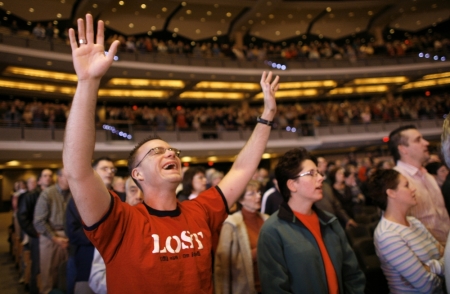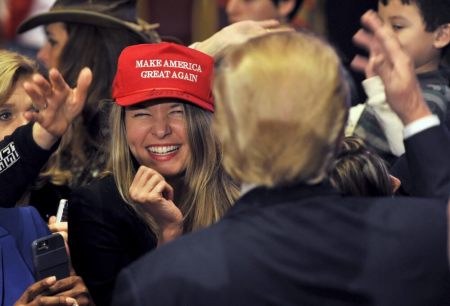39 Percent of GOP 'Evangelical' Voters Don't Believe Bible Is Literal Word of God

Nearly four in 10 Republican voters who identify themselves as "born again" or "evangelical" don't believe the Bible is the literal Word of God.
Pew Research published an analysis last week on the evangelical vote in the 2016 election season, using data accrued from the 20014 Religious Landscape Study.
According to the 2014 data, 39 percent of self-identified evangelical voters in the Republican Party do not believe the Bible is literal Word of God.
The analysis was based off of the question many political observers had regarding the strong support Republican frontrunner Donald Trump purportedly has among people who identify as evangelical Christians.
"[S]ome religious leaders, political analysts and researchers have questioned whether many of these self-described evangelicals actually are evangelical Christians," noted Pew.

"At the same time, some religious leaders have assumed that many of those who are telling exit pollsters that they are born-again or evangelical and that they voted for Trump aren't really evangelicals at all because, for example, they rarely attend church."
Pew cited a Washington Post column which argued that exit pollsters in general need to "offer a more detailed, nuanced and accurate look at voters and the roles religion may play in voting preferences."
"Thanks to exit polling data, we know evangelicals in Iowa fueled Sen. Ted Cruz's victory and that businessman Donald Trump narrowly won evangelicals in New Hampshire even as he scored a crushing victory overall," wrote Brian Kaylor in the Post last month.
"Despite all the attention given to faith by candidates and pundits, we know little else on religion from the exit polls."
Trump, the current frontrunner, has garnered controversy and attention for his many controversial remarks. But his support among self-described evangelical voters has remained strong despite statements that are at odds with the principles of religious conservatism.
One key argument is that those who support Trump who consider themselves evangelical or born-again don't even believe many things fundamental to evangelicalism.
Another piece of evidence for this theory was a Wall Street Journal poll which showed only 38 percent of Trump supporter attended worship on a weekly or more basis.
By contrast, 56 percent of supporters of more socially conservative candidates like Sen. Ted Cruz attended weekly or more, and 43 percent of those who support establishment candidates attended weekly or more.
While noting a sizeable minority of Republican voters who considered themselves evangelical did not believe the Bible was the literal Word of God, Pew cautioned that data from the 2014 study "does not provide a perfect point of comparison with the exit polls."
"For example, the Religious Landscape Study asks people whether they are Christian before asking if they think of themselves as born-again or evangelical," continued Pew.
"By contrast, everyone who takes the exit poll (including religious 'nones' and adherents of non-Christian faiths) has the opportunity to identify as a born-again or evangelical Christian."




















